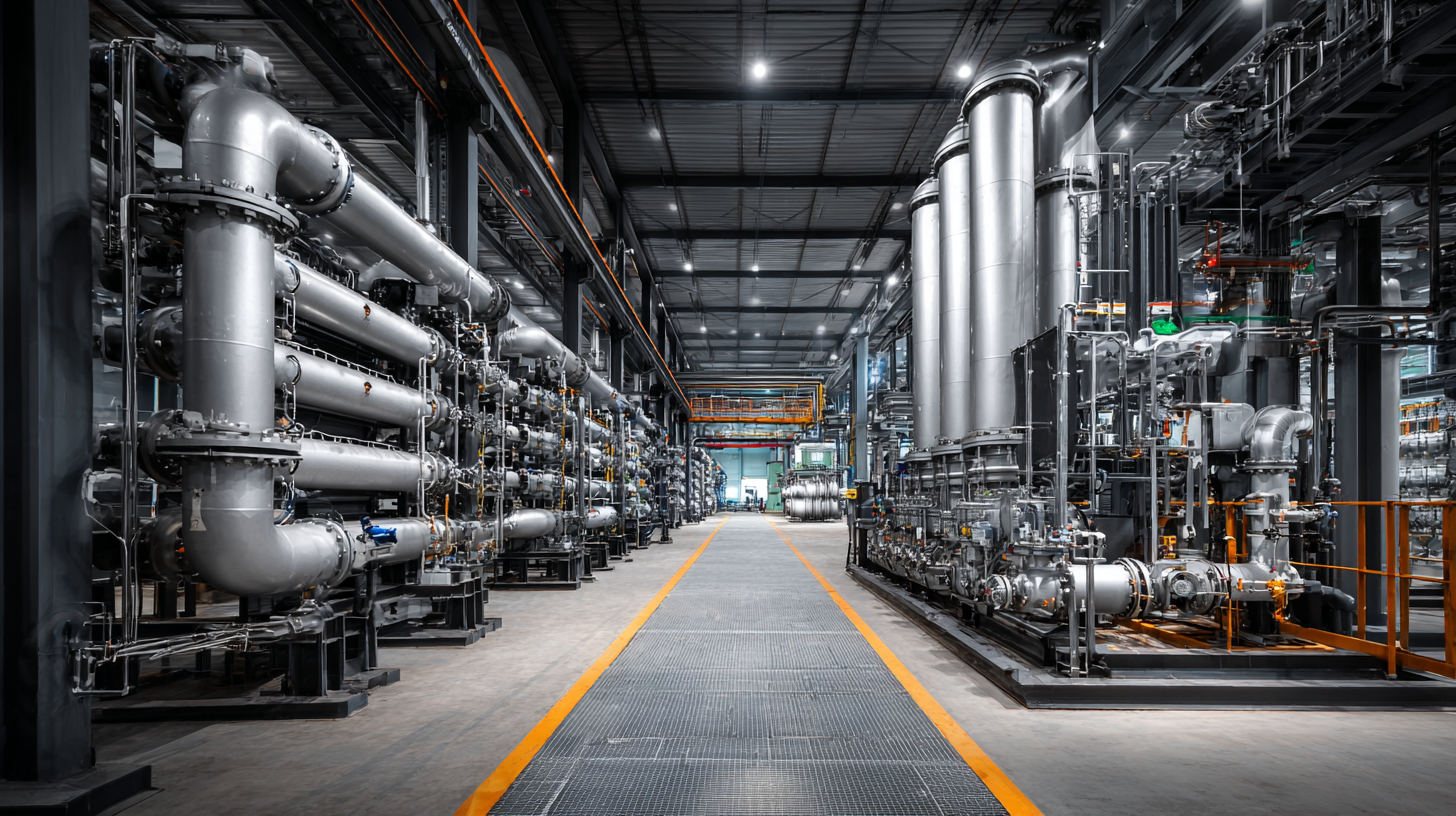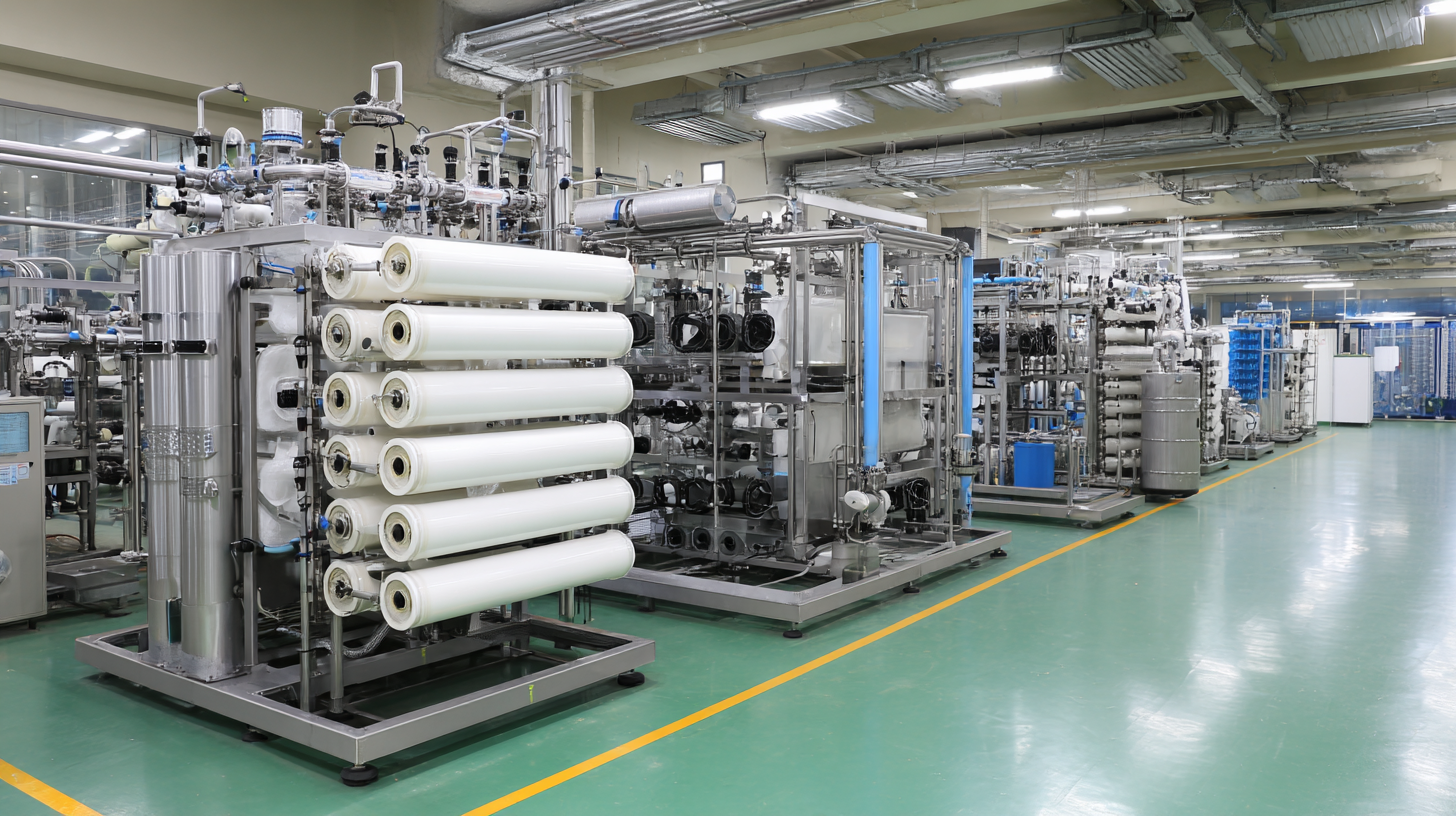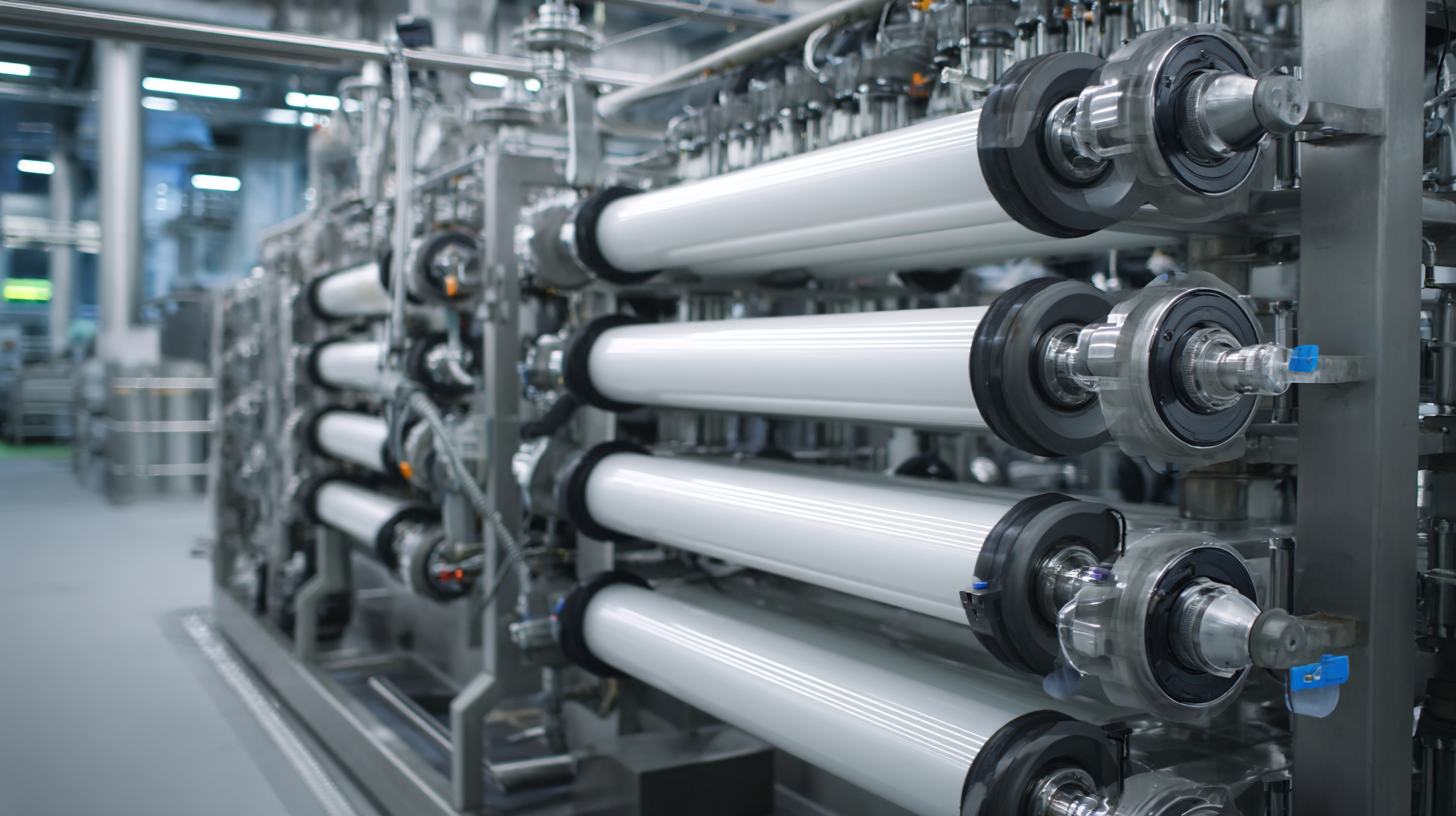Leave Your Message
Request a Quote
In an era where water quality concerns are increasingly paramount, Ultra Filtration (UF) technologies have emerged as a crucial solution for both industrial and residential applications. According to a recent report by MarketsandMarkets, the global ultra filtration market is projected to reach USD 3.1 billion by 2026, growing at a CAGR of 9.1% between 2021 and 2026. This explosive growth highlights not only the rising demand for high-quality water purification systems but also the necessity for selecting top-tier manufacturers capable of delivering best-in-class UF products. However, navigating through a myriad of manufacturers can pose challenges, particularly with inconsistent product quality and varying standards. Understanding the potential issues related to product reliability and effectiveness is essential for making informed decisions.

As we delve into the intricacies of choosing the right manufacturer, we will explore key considerations and best practices to ensure optimal performance and satisfaction from ultra filtration systems.
When selecting top-quality manufacturers for ultra filtration products, it's essential to identify key features that contribute to their leading position in the industry. A focus on advanced ultrafiltration membrane technology is paramount. Recent advancements illustrate that ultrafiltration membranes, particularly hollow fiber types, are increasingly being utilized in both water treatment and wastewater management, reflecting a projected market size of approximately
USD 4.85 billion by 2030. This growth indicates a strong demand for reliable performance and efficiency in removing contaminants, crucial for producing safe drinking water.
Furthermore, high-performance ultrafiltration membranes are increasingly being optimized using machine learning, significantly enhancing their design and functionality. Such innovations not only improve filtration efficiency but also promise more sustainable practices in water purification systems. As manufacturers adapt to these technological advancements, discerning consumers should look for companies that prioritize research-driven quality, robust testing protocols, and compliance with environmental regulations. Evaluating these key performance indicators will help identify manufacturers committed to excellence in ultra filtration and delivering the safest water for family health.
When selecting top-quality manufacturers for Ultra Filtration (UF) products, it is crucial to evaluate their quality standards and certifications. According to a report by the International Water Association, the effectiveness of UF membranes can vary significantly depending on their manufacturing quality, with poorly manufactured products potentially losing up to 30% of their filtration efficiency over time. Thus, manufacturers should adhere to stringent quality standards such as ISO 9001, which guarantees that their products meet both customer expectations and regulatory requirements.

Furthermore, certifications such as NSF/ANSI 61, which ensures that the materials used in water treatment do not contribute harmful contaminants to drinking water, should be a key consideration. In a study conducted by the Water Quality Research Foundation, over 40% of consumers indicated that they prioritize manufacturers with recognized safety certifications, underscoring the importance of credibility in the sourcing process. By focusing on manufacturers who uphold high-quality standards and possess relevant certifications, buyers can ensure the reliability and longevity of their UF systems, ultimately leading to safer, cleaner water solutions.
When selecting top-quality manufacturers for ultra-filtration products, assessing their production capacity and technology is paramount. A manufacturer’s ability to scale production efficiently can directly impact the availability and timeliness of products. For instance, recent developments in various sectors, including semiconductor manufacturing and biopharmaceuticals, underscore the importance of evaluating a manufacturer's capacity to adopt innovative technologies and processes. Manufacturers in India, for example, are exploring new facilities to enhance their assembly and packaging capabilities, indicating the growing importance of production capacity in global supply chains.
Furthermore, the technology employed in manufacturing processes plays a crucial role in ensuring product quality and sustainability. Advances in continuous bioprocessing for monoclonal antibodies showcase the economic and environmental benefits of adopting cutting-edge manufacturing techniques. In an industry increasingly focused on sustainability, manufacturers that embrace modern production technologies not only improve their efficiency but also contribute positively to the environment. Thus, when selecting manufacturers, it is essential to consider both their production capacity and the technologies they implement to remain competitive and meet market demands.
When selecting top-quality manufacturers for ultra filtration products, analyzing customer feedback and market reputation becomes paramount. Genuine customer reviews provide insights into the performance and reliability of products. By paying attention to both positive and negative feedback, prospective buyers can gauge the strengths and weaknesses of various manufacturers. This information can reveal crucial details about a product’s durability, efficiency, and overall satisfaction.

Moreover, a manufacturer's market reputation often reflects their commitment to quality and customer service. Manufacturers that prioritize transparency and cultivate a good relationship with their clientele usually enjoy a solid reputation within the industry. Consider companies that have received industry certifications or accolades, as these accolades can serve as indicators of quality and reliability. Engaging with forums and communities related to ultra filtration products can further enrich your understanding of different manufacturers' standings, helping you make well-informed decisions.
Selecting top-quality manufacturers for ultra-filtration products requires a comprehensive understanding of supply chain and distribution networks within the manufacturing sector. According to a recent report by MarketsandMarkets, the global ultrafiltration market is projected to reach USD 3.4 billion by 2025, which underscores the increasing demand for effective water purification solutions. This growth is heavily influenced by the efficiency and reliability of the supply chain, which includes sourcing raw materials, production processes, and distribution mechanisms.
A well-structured supply chain enables manufacturers to minimize costs and improve delivery times, both critical factors in maintaining competitive advantage. The 2020 Supply Chain Report by Deloitte indicates that companies with resilient supply chains can achieve up to 15% higher profitability than their peers. Thus, when selecting manufacturers for ultra-filtration products, it’s essential to evaluate their supply chain capabilities, including their relationships with suppliers, logistics networks, and their agility in adapting to market changes. Understanding these factors can greatly enhance decision-making and lead to more sustainable and quality-focused manufacturing partnerships.

